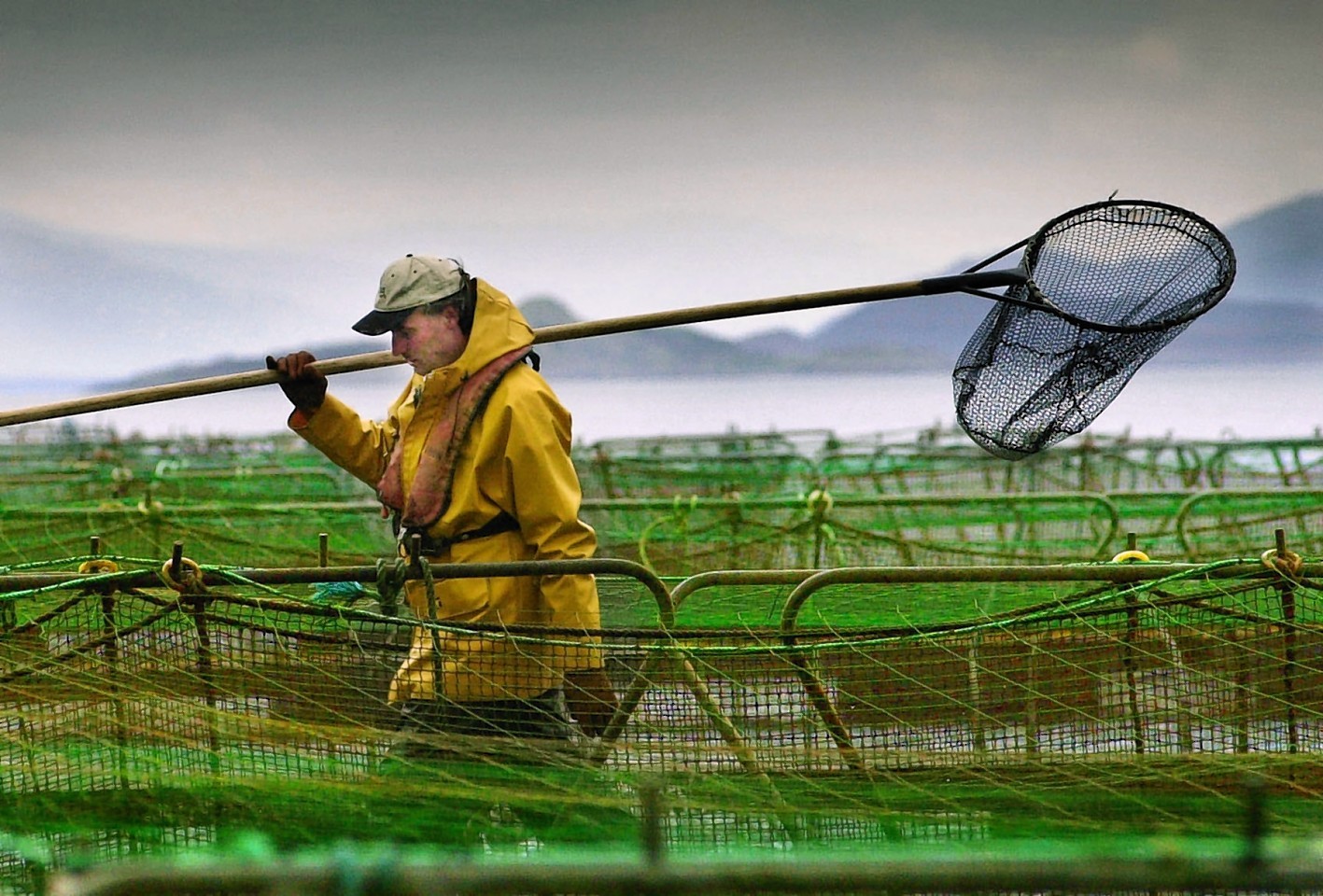Leading businesses and organisations in Scotland’s aquaculture industry have joined forces to create an ambitious growth strategy.
Launched today, the Vision 2030 Group Aquaculture Strategy identifies key actions required to double the economic contribution of the industry from £1.8billion in 2016 to £3.6billion by 2030.
It is estimated this will generate more than 9,000 new jobs in the sector and establish Scotland as a global leader in the industry.
Aquaculture in Scotland is diverse, from the farming of salmon and other finfish species to the production of mussels and oysters and the harvesting of seaweed.
Farmed salmon is already the country’s top food export, however the new strategy seeks to unleash the industry’s full potential contribution to Scotland’s economy, environment and communities.
Developed after industry-wide consultation, it sets out key recommendations for action by both the industry and government.
Its recommendations cover six themes – industry leadership, regulation, innovation, skills development, investment and infrastructure.
Among 20 specific recommendations, three are identified as critical to the sustainable growth of the industry.
These include the creation of a new leadership group to drive co-operation between industry and the government in order to deliver growth.
The blueprint also calls for changes at Marine Scotland, the government agency which regulates the sector, by removing its industry development role.
In addition, the strategy seeks to set up world-leading innovation sites to trial cutting-edge equipment, technology and fish health projects.
The working group behind the plan includes representatives of the Scottish Salmon Producers Organisation, Scottish Aquaculture Innovation Centre, Scotland Food and Drink, the Association of Scottish Shellfish Growers and Highland Council.
Businesses on board include Aquascot, Gael Force Group (GFG), Ferguson Transport & Shipping and Wester Ross Salmon.
GFG managing director and working group co-chairman Stewart Graham said: “We have developed a roadmap to 2030 which can make a transformational impact on Scotland’s economy and our rural communities.
“The real work begins now and we want to forge a new partnership between the industry, government and its agencies to unlock the full potential of sustainably farming Scotland’s seas.
“The creation of a new industry leadership group to reflect that collaborative partnership will be a critical first step.”
Economy and Rural Affairs Secretary Fergus Ewing, said: “Aquaculture is one of our real economic success stories of recent years, with the industry on track to grow to a value of well over £2billion annually to the Scottish economy by 2020, supporting 10,000 jobs.
“I warmly welcome the Vision 2030 Group’s report, which is a strong signal of business confidence and highlights the significant further potential in the sector.”
